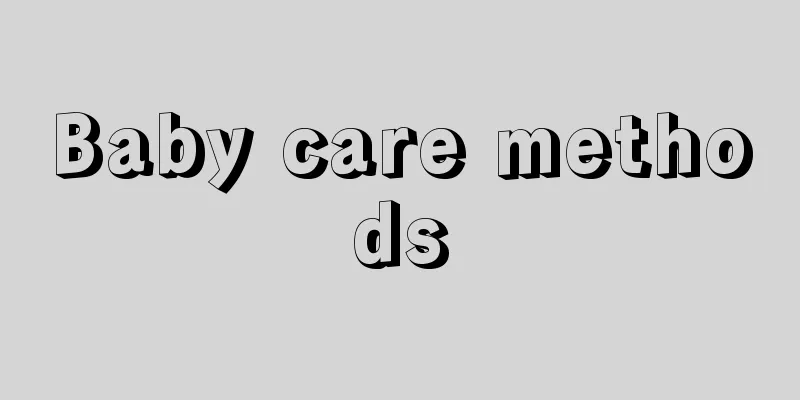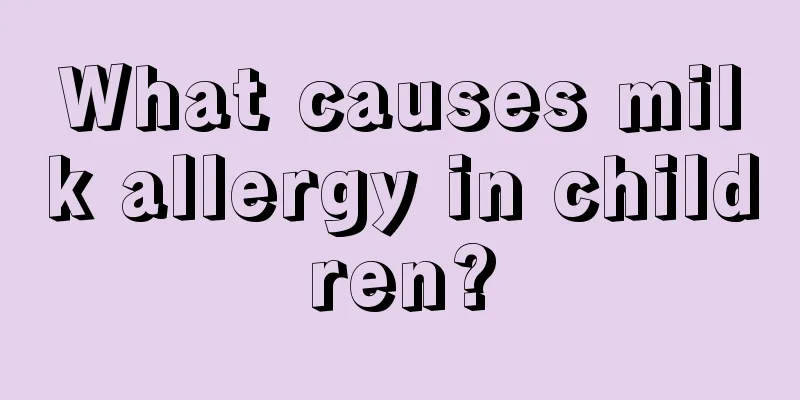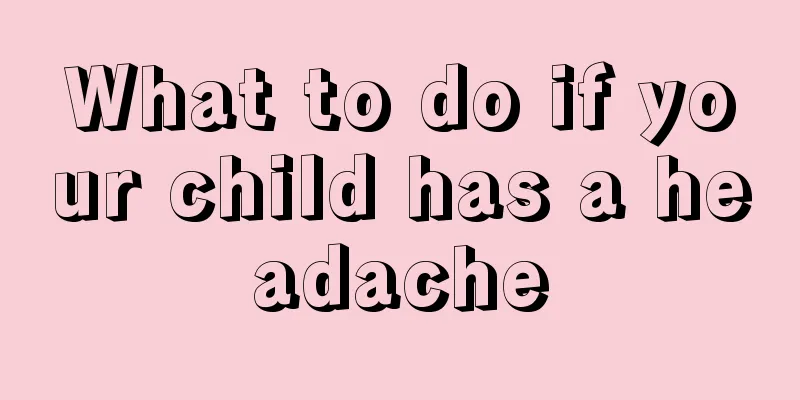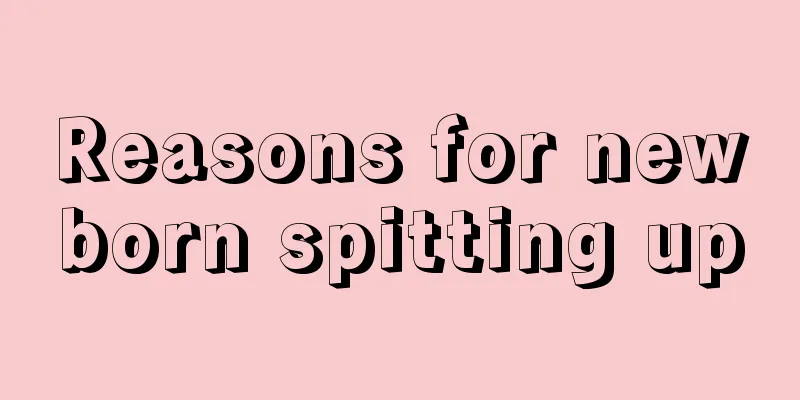What to do if the newborn still wants to eat after spitting up milk

|
After a newborn is born, the child's intestines and body are not yet fully developed, and many young mothers do not know how to guide their children correctly? Only by feeding the baby correctly can the baby be prevented from spitting up milk. Let us find out what to do if a newborn baby spits up milk but still wants to eat. ? If the baby lies flat on the bed immediately after feeding, milk will flow out from the corners of the mouth, and the baby may even spit out all the milk he has just eaten. However, if you hold your baby upright for a while after feeding and then put him/her in bed, spitting up will be significantly reduced. In medicine, this kind of spitting up is called regurgitation. Why do babies spit up milk? The stomach of a child is horizontal, with a straight bottom, and the contents can easily overflow. After standing and walking, the diaphragm descends and the effect of gravity gradually turns it into a vertical position. In addition, the baby's stomach capacity is small, the stomach wall muscles and nerves are not yet fully developed, and the muscle tone is low, all of which can easily cause milk regurgitation. The sphincter of the cardia (near the esophagus) of the baby's stomach is not as well developed as that of the pylorus (near the duodenum), which makes the stomach's outlet tight and the entrance loose. When the baby lies flat, the stomach's contents can easily flow back into the esophagus and overflow with milk. Improper feeding methods, excessive feeding, inverted nipples, empty bottles, or nipples that are not full of milk can all cause the baby to swallow a lot of air and spill milk. Frequent changes in body position after feeding can also easily cause milk to spit up. Spitting up is completely preventable. For bottle feeding, the nipple opening should be of the right size and the nipple must be filled with milk. If the mother has inverted nipples, they should be corrected during pregnancy. After feeding, the baby should be gently picked up, with the head resting on the mother's shoulder, and the baby's back should be patted gently to expel the air in the stomach. If the milk regurgitation is caused by the relaxation of the cardia and incomplete closure function, the baby should be held upright for one or two hours after feeding, and then put on the bed with the head slightly raised. As the muscles in the gastric cardia develop fully, the symptoms of milk regurgitation will gradually ease. In the article, we learned that if a newborn baby spits up milk but still wants to eat, this may be because the child is not full. Spitting up milk is often called choking. Generally speaking, it is caused by not paying attention to the good posture when feeding the child. It is recommended that parents learn more about this. |
<<: Reasons why newborns spit up milk
>>: Reasons for newborn spitting up and hiccups
Recommend
What is the reason for white particles in baby's stool?
The baby's development is an issue that every...
What to do if your newborn baby always chokes when eating milk
Generally speaking, if a newborn baby chokes occa...
What to do if your child is deaf?
We know that almost every parent in the world act...
Baby hip development standards
Hip joint development begins in infancy. We have ...
How to educate a 21-month-old baby
A 21-month-old baby is almost two years old. At t...
How to read children’s blood test?
When a child shows some discomfort symptoms, many...
What should I do if a seven-year-old child has a cough?
People of all ages usually have symptoms of cough...
What to do if your 1-year-old child has diarrhea
Pediatric diarrhea is a common pediatric disease ...
What to do if your baby's lips peel
Whenever the weather gets dry in autumn and winte...
What are the symptoms of high lead levels in children?
Lead is a heavy metal. If the lead content in a c...
What should I do if my newborn baby has an uneven face?
When newborns are just born, do you think that ev...
How to make baby meat pie
Since the digestive ability of the baby's sto...
What calcium tablets can children take to grow taller
It is very important for children to supplement c...
The child's lower eye sockets are blue
For children, they must get enough sleep to ensur...
What is wrong with children's soft nails?
For children, because their diet is relatively mo...









